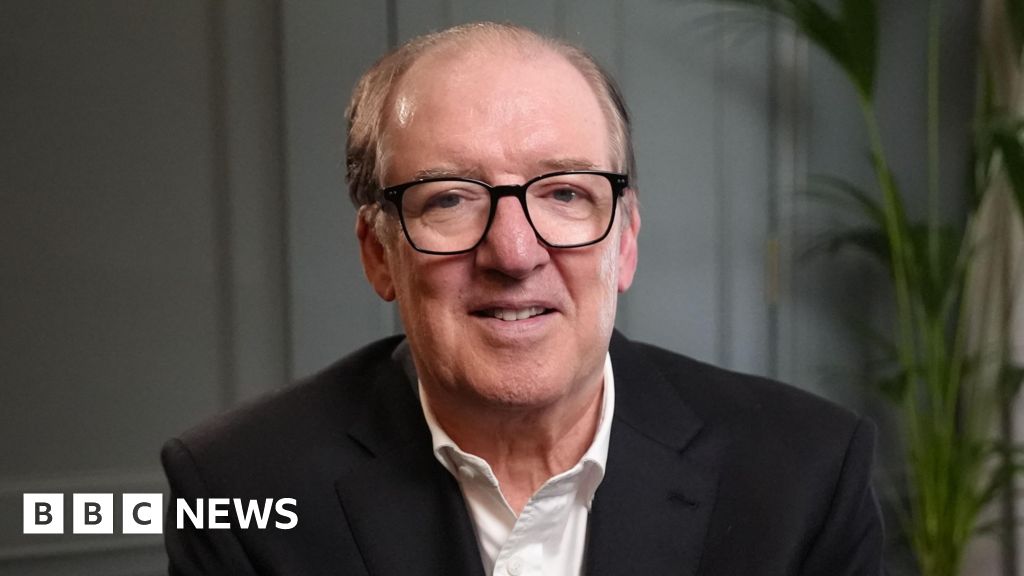Sir David Murray says sorry over sale of Rangers to Craig Whyte

David Murray says sorry over disaster of Rangers sale16 minutes ago Share Save James Cook Scotland Editor Mary McCool BBC Scotland News Share SaveBBCThe former owner of Rangers, Sir David Murray, has apologised to fans for his part in the financial calamity that befell the club more than a decade ago. Sir David, who sold the Ibrox side for £1 to businessman Craig Whyte, presided over Ibrox when the club gave £47m in tax-free loans to players and staff between 2001 and 2010. Under Mr Whyte's ownership the Rangers business went into liquidation in 2012 - a year after the sale. In a wide-ranging interview with the BBC to mark the publication of his autobiography, Mettle, Sir David said he regretted his decisions and said sorry to fans and club staff."Of course I'd apologise," he said. "I'm not one of these people who run a company and hide. "It was a terrible moment, and I apologise to all the staff, good people, and I know many of them to this day. "I'd hope in hindsight, they look at the facts and think I was put in a very difficult position."What were the facts?SNS The sale of Rangers and its resulting financial collapse had a huge effect on fansWhat was known as the 'big tax case' centred on the club's use of Employee Benefit Trusts (EBTs). EBTs, which were also used by other clubs, enabled Rangers to pay £47m to players, managers and directors between 2001 and 2010 in tax-free loans. HMRC argued the payments were earnings and should be taxable. Two tribunals in 2012 and 2014 had previously found in Rangers' favour but the Supreme Court ruled in favour of HMRC after an appeal in 2015. The case unfolded against a backdrop of financial meltdown for Rangers. Years later, Mr Whyte was charged and cleared of taking over the club by fraud. A court heard that his takeover of Rangers was sealed with a pound coin being tossed across a table in Sir David's office. At the time, Mr Whyte had agreed to take on obligations which included paying an £18m bank debt and £5m for players. Sir David denied failing to carry out due diligence on Mr Whyte, saying: "I went on the facts in front of me."PA Media Craig Whyte bought the club and its debts for £1 in 2011Challenged on whether it was morally acceptable to deprive the NHS and other public services of funds so millionaire footballers could pay less tax, Sir David replied: "They didn't do anything illegal." "Footballers are getting paid too much. Not just at Rangers, everywhere," he went on, adding: "It's avoidance. People do that." Sir David denied that the trophies Rangers had won in this period were tainted by the tax arrangements and also denied that the scheme amounted to buying success, or financial doping. "Not at all," he replied, adding: "It was proven in the end it wasn't an illegal tax scheme."Sectarianism, steel and Sir Sean ConneryPA Media Sir David built his fortune in the metal industry before turning to footballSir David made his name in the steel industry, forming the company Murray International Metals Limited by the age of 23. In 1988, he purchased Rangers for £6m and went on to see the club win 15 league championships and 20 domestic Cups. He and manager Graeme Souness signed the club's first high-profile Catholic player since World War Two - Mo Johnston, who previously played for Celtic - in 1989. Reflecting on sectarian tensions in Glasgow, which he described in his book as "vitriol", Sir David said the continued singing of sectarian songs at Ibrox was not acceptable. "There's no place for that in society," he said. "I don't think it's right and I've said that and I lost some of the support of the Rangers fans by saying that."SNS Sir David's early success as Rangers owner was achieved with manager Graeme SounessThe businessman also called for an inquiry into the Scottish government's involvement in the sale of two steel processing plants in Lanarkshire to the tycoon Sanjeev Gupta. The sale was backed by a £7m support package from the Scottish government. Sir David claims ministers rejected his rival bid to purchase the business because it was potentially incompatible with state aid rules, and criticised Mr Gupta's management of Liberty Steel in the years since. The Scottish government it had "acted quickly" to support the transaction, adding: "This intervention sustained over 100 jobs at Dalzell and retained steelmaking capacity in Scotland." Sir David was also critical of the industrial policies of both the Scottish and UK governments saying: "It's ridiculous that Britain does not have the capacity to make a steel plate for its defence."SNS Sir David lost his legs after a car accident at the start of his business career














